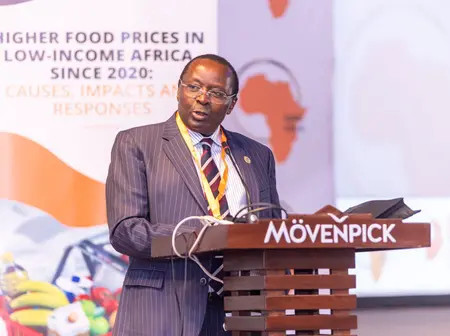The Africa Economic Research Consortium (AERC) is urging policymakers to prioritise access to available and affordable clean cooking energy, especially for women in rural areas, after new research revealed stark gender disparities worsened by global shocks.
The study, “Gendered Differences in Household Cooking Coping Strategies for the Russia-Ukraine War in Kenya,” shows that disruptions in global supply chains from the war drove up fuel, food, and fertiliser prices, compounding the burdens already placed on women during the Covid-19 pandemic.
Speaking at an AERC side event at the SPARC & Jameel Observatory Joint Conference in Nairobi, AERC Executive Director Prof Victor Murinde noted that the persistence of high food and fertiliser prices continues to affect the well-being of many vulnerable households.
“This research shows that whereas these shocks often begin globally, in this case, the Russia-Ukraine war, their effects are deeply felt at the household level across Africa,” said Prof Murinde.
He noted that women were disproportionately forced to switch to cheaper, traditional fuels such as firewood, which lengthened cooking times and increased household strain.
Prof Murinde says the study captured significant gendered differences in cooking strategies with about two-thirds of households that stopped using kerosene due to the Russia-Ukraine war switching to LPG, a cleaner fuel.
“Only about 8 per cent of the households switched to firewood, and this was mainly in rural areas, with women being more likely to switch to this fuel than men,” noted Prof Murinde.
He added: “Ensuring that clean cooking energy is available and affordable, especially for women in rural areas, should be a policy priority.”
The study, conducted by Onyango Dickson Wandeda, Macharia Kenneth Kigundu, Ngui Dianah, and Maloi Lanoi, also evaluated gender differences in time savings and assessed the effectiveness of fuel subsidies.
The Nairobi forum attracted policymakers, NGOs, multilaterals, and research institutions, with participants underscoring the need to translate research into practical policy solutions that protect vulnerable households while advancing food security and equity across Africa.

Leave a Reply